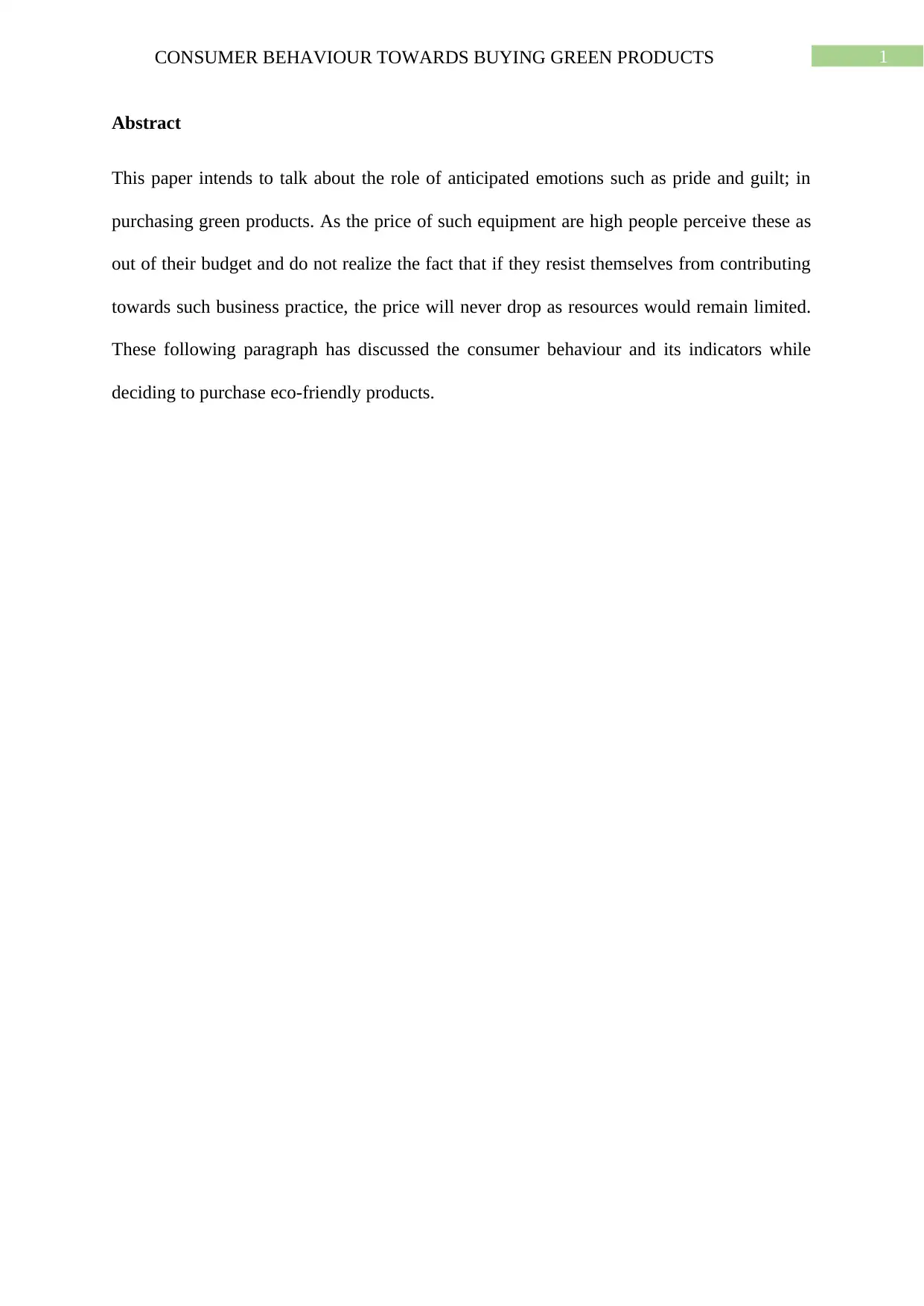Consumer Behaviour and the Purchase of Environmentally Green Products
VerifiedAdded on 2023/05/27
|5
|937
|112
Essay
AI Summary
This essay delves into the consumer behaviour associated with purchasing green products, focusing on the influence of anticipated emotions such as pride and guilt. It highlights the perception of green products as expensive, which often deters consumers despite their potential environmental benefits. The essay discusses how consumers' beliefs about their ability to impact environmental degradation can drive sustainable behaviour. It also acknowledges the economic barriers that prevent some individuals from purchasing green products, leading them to adopt alternative environmentally friendly practices like reducing plastic use and conserving resources. Furthermore, the essay touches on the consistency principle, emphasizing that increased investment in green products can lead to a more promising market and greater accessibility. Ultimately, it advocates for educating consumers about their potential to contribute to environmental sustainability, fostering a more environmentally conscious society. Desklib offers a range of resources, including past papers and solved assignments, to further explore this topic.
1 out of 5











![[object Object]](/_next/static/media/star-bottom.7253800d.svg)